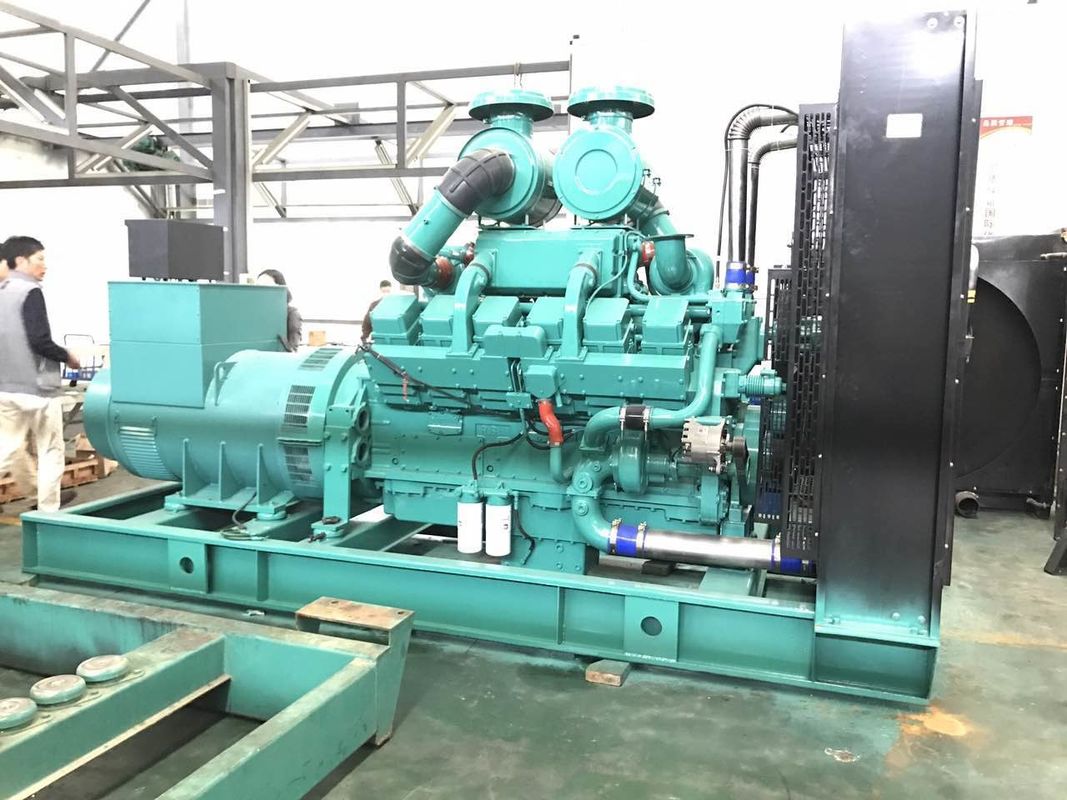Introduction:
In today's fast-paced and ever-changing world, reliable power supply is crucial for various industries and applications. However, 200kw diesel generator for commercial buildings are equipped to handle sudden changes in energy demand, especially in transient load scenarios. This is where diesel generators prove to be an indispensable solution. This article aims to explore the significance of diesel generators in providing a stable power supply for transient loads and how they contribute to the uninterrupted functioning of critical systems. By understanding the working principles, advantages, and considerations associated with diesel generators, we can appreciate their role in ensuring reliable power supply in dynamic environments.
1. Understanding Transient Loads:
Transient loads refer to sudden and unpredictable changes in power demand that occur within a short period of time. These loads can result from various factors such as the starting of electric motors, sudden equipment activation, or the switching on of heavy machinery. Transient loads can cause voltage drops, frequency variations, and power disturbances, which can adversely affect the performance and longevity of electrical equipment. To mitigate these issues, a reliable power source capable of handling transient loads is necessary.
2. Diesel Generators: An Overview:
A diesel generator is a prime mover that converts mechanical energy produced by the combustion of diesel fuel into electrical energy. It consists of several components, including an engine, alternator, fuel system, cooling system, and control panel. Diesel generators are widely used in applications where a stable power supply is critical, such as hospitals, data centers, manufacturing plants, construction sites, and remote locations.
3. Working Principles of Diesel Generators:
The working principles of diesel generators involve the conversion of chemical energy in diesel fuel into mechanical energy and then into electrical energy. The process can be summarized as follows:
3.1 Fuel Combustion: Diesel fuel is injected into the engine's combustion chamber, where it mixes with compressed air. The heat generated by the compression ignites the fuel, causing it to combust. This combustion process produces high-pressure gases that expand and drive the pistons in the engine.
3.2 Mechanical Energy Conversion: As the pistons move, the crankshaft converts the linear motion into rotary motion. This mechanical energy is then transmitted to the alternator through a coupling or belt drive.
3.3 Electrical Energy Generation: The alternator, also known as a generator, consists of a rotor and a stator. The mechanical energy from the engine is used to rotate the rotor, which induces a magnetic field. The interaction between the rotating magnetic field and the stationary stator windings generates an electrical current. This current is then regulated and supplied to the electrical loads connected to the generator.
4. Advantages of Diesel Generators for Transient Loads:
4.1 High Power Output and Load Acceptance: Diesel generators are renowned for their high power output and ability to handle heavy loads. They have a greater power density compared to other generators, making them suitable for applications with high transient load demands.
4.2 Quick Start and Rapid Response: Diesel generators can start and reach full power output within seconds, ensuring a swift response to sudden load changes. This attribute is particularly crucial in time-sensitive applications where any delay in power supply can result in significant losses.
4.3 Durability and Longevity: Diesel generators are built to withstand harsh operating conditions and heavy usage. They are designed to operate continuously for extended periods, making them reliable in demanding environments. With proper maintenance, diesel generators can have a long operating life, providing a cost-effective power solution in the long run.
4.4 Fuel Availability and Flexibility: Diesel fuel is widely available, making it a practical choice for generators in various locations. Moreover, diesel generators can operate on different fuel types, such as biodiesel or synthetic diesel, further enhancing their flexibility.
4.5 Lower Operating Costs: Diesel fuel is generally more cost-effective compared to other fuel sources, such as gasoline or natural gas. Additionally, diesel generators require less maintenance and have lower fuel consumption rates, resulting in reduced operating costs over time.
5. Considerations for Diesel Generators in Transient Load Scenarios:
While diesel generators offer significant advantages for transient loads, certain considerations should be taken into account during their selection and operation:
5.1 Sizing and Load Management: Proper sizing of the generator based on the anticipated load requirements is crucial for optimal performance. Oversizing or undersizing can result in inefficient operation and increased fuel consumption. Additionally, load management systems should be implemented to ensure the generator is not overwhelmed by sudden load changes.
5.2 Noise and Emissions: Diesel generators can be noisy and emit pollutants, so it is essential to consider noise and emission regulations, especially in urban areas or environmentally sensitive locations. Noise reduction measures, such as soundproof enclosures, and emission control technologies can be employed to address these concerns.
5.3 Maintenance and Fuel Quality: Regular maintenance and adherence to manufacturer guidelines are essential to ensure the longevity and reliability of diesel generators. Additionally, fuel quality should be monitored to prevent engine issues and maintain optimal performance.
5.4 Safety Measures: Diesel generators should be installed and operated in compliance with safety standards to prevent accidents and protect personnel. Adequate ventilation, fire safety provisions, and proper grounding are among the essential safety considerations.
Conclusion:

Diesel generators play a vital role in providing a stable and reliable power supply for transient loads. Their ability to handle sudden changes in energy demand, quick start-up time, durability, and cost-effectiveness make them an ideal choice for various industries and applications. By understanding the working principles and considering the necessary factors, such as sizing, load management, maintenance, and safety, diesel generators can be effectively utilized in dynamic environments. With their robustness and adaptability, diesel generators ensure uninterrupted power supply, safeguarding critical systems and enabling industries to operate smoothly even in transient load scenarios.
